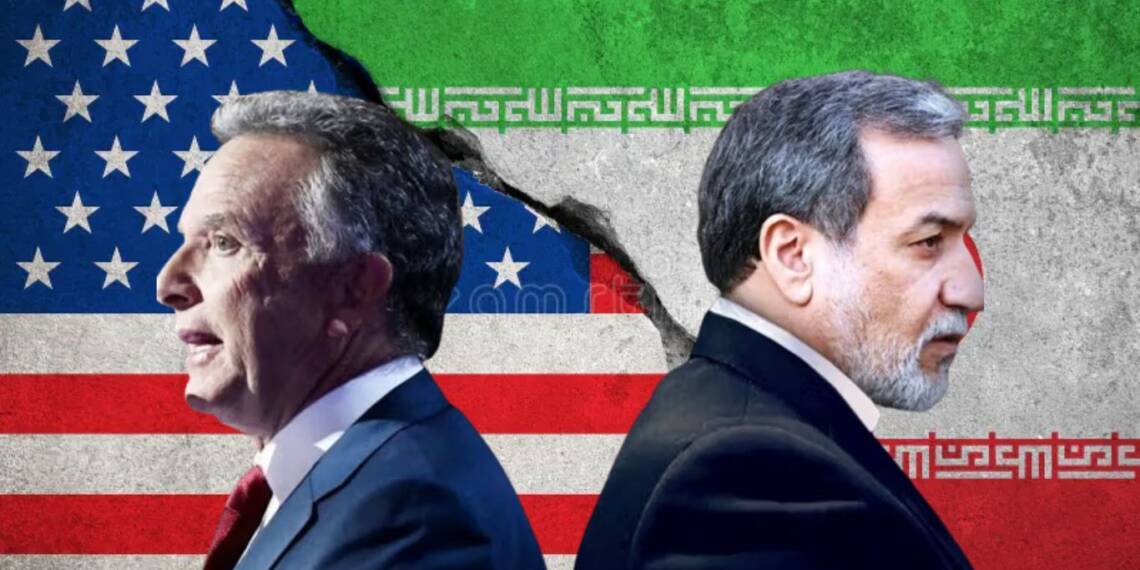The ongoing negotiations over Iran’s nuclear program are again at a critical juncture. Iran insists it has no intention of developing nuclear weapons, yet continues enriching uranium to 60% — dangerously close to weapons-grade. This is far above the 3.67% limit set in the 2015 Joint Comprehensive Plan of Action (JCPOA). While Iranian officials argue that enrichment is for civilian energy and medical purposes, such high levels raise legitimate concerns in Washington, Tel Aviv, and European capitals.
The United States, under both Democratic and Republican administrations, has repeatedly emphasized the dangers of Iran becoming a “threshold” nuclear state. President Trump’s former envoy, Steve Witkoff, recently stated that even 1% enrichment is too much, calling enrichment the “gateway to weaponization.” His position reflects growing bipartisan consensus in the U.S. that Iran’s program must face stricter constraints.
Iran’s Defiance and Double Speak
Iran’s chief negotiator and Foreign Minister Abbas Araghchi continues to assert Tehran’s “non-negotiable“ right to enrich uranium under the Nuclear Non-Proliferation Treaty (NPT). However, the same treaty also obligates member states to be transparent and peaceful in their nuclear ambitions — a standard Iran has failed to fully meet. Its uranium stockpile, the refusal to allow full IAEA access, and a long history of concealment have fueled distrust.
Araghchi has stated Iran will continue enrichment “with or without a deal,“ undermining the very spirit of diplomacy. Despite offering temporary restrictions, Iran has consistently rolled back commitments when it suited its political agenda, especially after the U.S. withdrawal from the 2015 deal in 2018. In this light, U.S. and Israeli skepticism is not only understandable but essential.
Israel’s Security Concerns Are Valid
While the U.S. favors diplomacy, Israel remains prepared for military options if talks fail. Prime Minister Benjamin Netanyahu has long warned that Iran is merely buying time to reach breakout capability. The recent tension between Netanyahu and Trump over the handling of Iran reflects different tactics, not goals. Both seek to prevent a nuclear Iran — a state that openly threatens Israel’s existence and funds proxy terror groups across the region.
From Israel’s point of view, even a nuclear-capable Iran, short of actual weaponization, is a direct threat. Their concerns are not exaggerated but rooted in history, intelligence, and lived reality. U.S. diplomacy must account for Israeli security needs while crafting any future deal.
Europe’s Dilemma: Time Is Running Out
The European signatories of the JCPOA — Britain, France, and Germany — now face a tough choice. The “snapback” mechanism that would reimpose UN sanctions on Iran expires in October. While Iran threatens “irreversible consequences“ if sanctions are restored, inaction would signal acceptance of its nuclear escalation.
Iran has tried to woo Europe by promising a “new chapter“ in relations. However, unless Tehran shows serious intent to reduce enrichment and allow robust inspections, Europe must side with the United States to tighten the pressure. Charm offensive cannot outweigh the security risks posed by its nuclear brinkmanship.
A Narrow Path for Diplomacy
Despite harsh rhetoric and hardened positions, diplomacy remains the most viable path. But any agreement must ensure Iran is kept far from nuclear capability. The U.S. has rightly demanded tighter restrictions, longer timelines, and stricter verification mechanisms.
Iran’s demand to preserve enrichment is incompatible with global nonproliferation goals unless it is subject to extreme oversight. The international community — led by the U.S., supported by Europe, and informed by Israeli intelligence — must stand united to ensure Iran does not cross the nuclear threshold.
A Deal Is Possible, but Not at Any Cost
The U.S. is right to draw red lines. The world cannot afford another North Korea — a rogue state armed with nuclear weapons. Iran must choose whether it can have nuclear energy under international supervision, or continue down a path that invites isolation, sanctions, and possibly conflict.
The ball is in Tehran’s court. If it truly seeks peace and stability, it must show it, not just say it.








